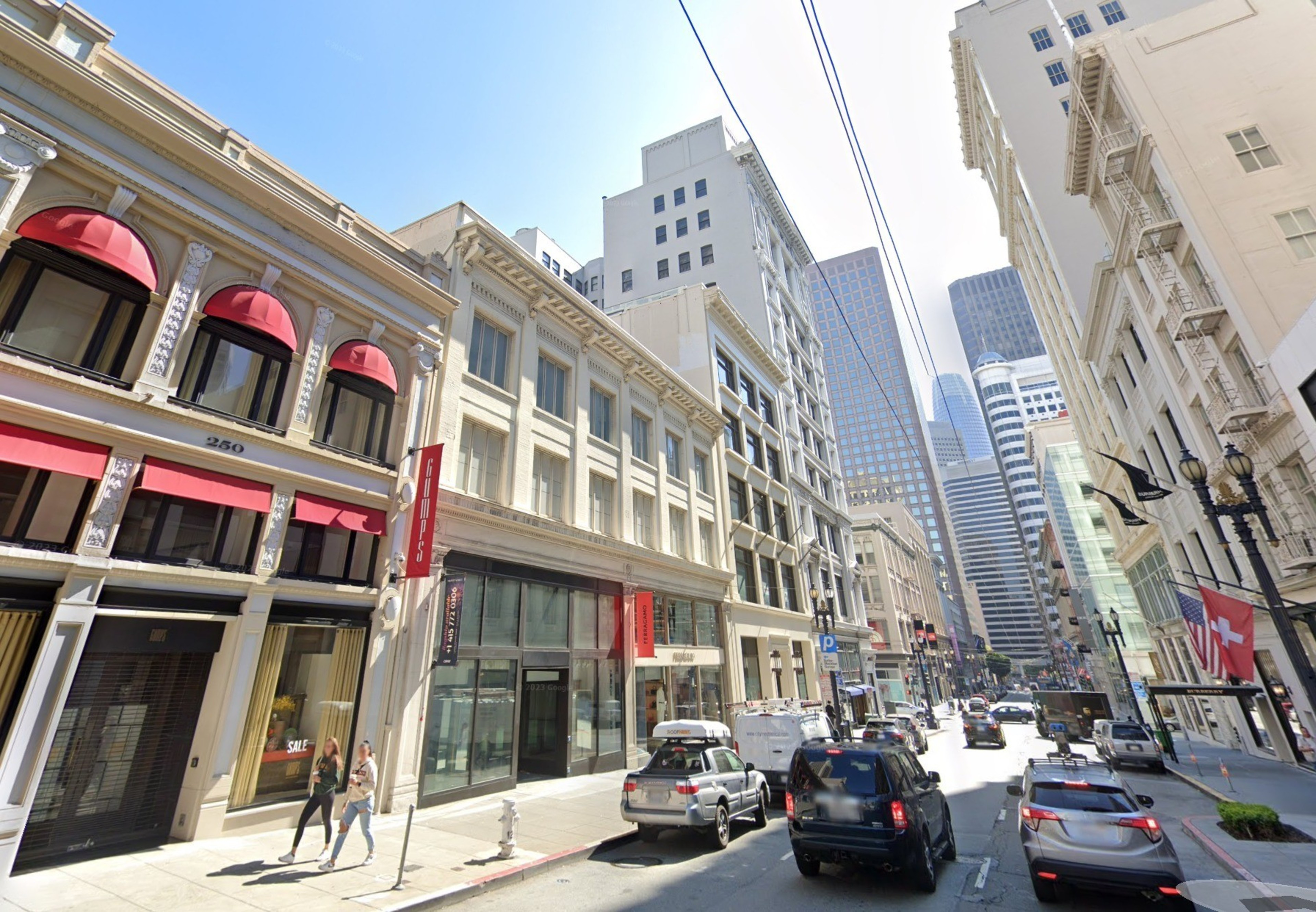The owner of Gump’s, one of San Francisco’s most storied department stores, issued a scathing rebuke to city leaders this weekend over business and street conditions Downtown.
John Chachas, who acquired Gump’s following a Chapter 11 bankruptcy in 2018, paid for ad space in the print edition of Sunday’s San Francisco Chronicle to run an open letter decrying the state of the city’s Downtown, and what he sees as dereliction of leadership from Mayor London Breed and the city’s Board of Supervisors, as well as California Gov. Gavin Newsom.
“Gump’s has been a San Francisco icon for more than 165 years,” he wrote in the ad. “Today, as we prepare for our 166th holiday season at 250 Post Street, we fear this may be our last because of the profound erosion of this city’s conditions.”
Many Downtown offices are empty as employers have shifted to long-term remote work policies first adopted during the Covid shutdowns. Chachas said foot traffic is down due to a lack of workers Downtown and said the effects of “the tyranny of the minority” of people occupying sidewalks, selling drugs and defiling public spaces led him to publish the letter.
The letter asked the governor, mayor and city supervisors to clean up the streets, remove homeless encampments, enforce laws and bring San Francisco back to “its rightful place as one of America’s shining beacons of urban society.”
On Sunday, Chachas told The Standard he has received nothing but support through the comment section on Gump’s website.
“No one’s told me, ‘Oh my, how uncaring you are toward the homeless,'” he said. “I received multiple responses saying ‘truth to power,’ ‘You’re saying exactly what everybody believes.’ It’s just that no one listens.”

‘A Labor of Love’
Chachas called Gump’s “a labor of love,” describing how he reopened it, releasing a new location and rehiring about a third of its original 120 staff members.
Though the company’s warehouse, fulfillment center and direct-to-consumer infrastructure are based in Salt Lake City, “our store remains in San Francisco. As they say, our heart remains in San Francisco. And I just couldn’t take watching what was going on, so we ran the ad.”
Chachas said he had received messages from customers unwilling to visit the brick-and-mortar location in the Union Square district. He recounted a message from one customer, who, he said, told him, “I love your store. I love your product. I’ll buy something online. I don’t want to step foot in that city.”
“That’s not a workable model,” Chachas said.
“I’m hoping that what this galvanizes is a real conversation to change what San Francisco’s doing,” said Chachas, who said he believes that city and state leaders act “like there’s something humanitarian and evolved in their permission of that kind of behavior. There’s nothing evolved.”
Gump’s is still on track to open its traditional second storefront as a seasonal emporium offering a range of high-end holiday-themed ornaments, gifts and jewelry. It also plans to rely on its catalog, as well as individual outreach to a select number of customers.
“We’re trying to do what we’ve always done, which has been world-class service for people who love the brand and love the things that we offer,” he said. “We’ll have a pretty store and hope that a lot of people will come to our site and our catalog.”
Looking at a Move Elsewhere
But Chachas was plain-spoken about the retailer’s potential options, noting that Gump’s at one point had successful stores in Dallas, Houston and Chicago. He also said Gump’s was weighing options elsewhere in the Bay Area and parts of Southern California and even mulling over options in at least two Florida cities, where he thought warm weather and strong foot traffic could bode well.
“Where is our best shot in terms of organic growth?” Chachas said. “How many days a year are people there and walking?”
“The decision about Gump’s will be made based on where our historic customer base is, what community do we think is going to have the best option and an opportunity for us to grow its policies.”
Chachas floated one idea to revive foot traffic to business districts—a tax cut, perhaps 30% over three years, for businesses willing to implement full-workweek returns to offices. “Now will every business take advantage of that tax cut? Probably not,” he said.
“I mean, there’ll be some geniuses at Salesforce or Meta or someplace who will think that it’s just a great idea for people to continue to work at home in their pajamas,” he said. “But a giant number of employers will look at that tax cut and say, ‘You bet I want it. That’s it. That’s great! That gives me a motive to get people back to their offices.’ But you have to have political figures who first acknowledge the problem.”
He referred to New York City Mayor Eric Adams and New York Gov. Kathy Hochul, who have offered support for return-to-office policies. He also said retail businesses in San Francisco and California more broadly are being hurt because thieves know shoplifting is rarely prosecuted, and even when it is, penalties are low.
“People don’t walk into stores in Salt Lake City and steal things because they know that the police will arrest them, and the district attorney will charge them, and they will be found guilty and put in prison, so people don’t do it,” he said.
“You have to return to a set of norms and standards of conduct that are enforced and stop talking about it like there’s some special pixie dust that exists in San Francisco,” he said. “Decide you want to enforce that, so that people can have a livable city. Some think it’s complicated. I think it’s quite straightforward.”
